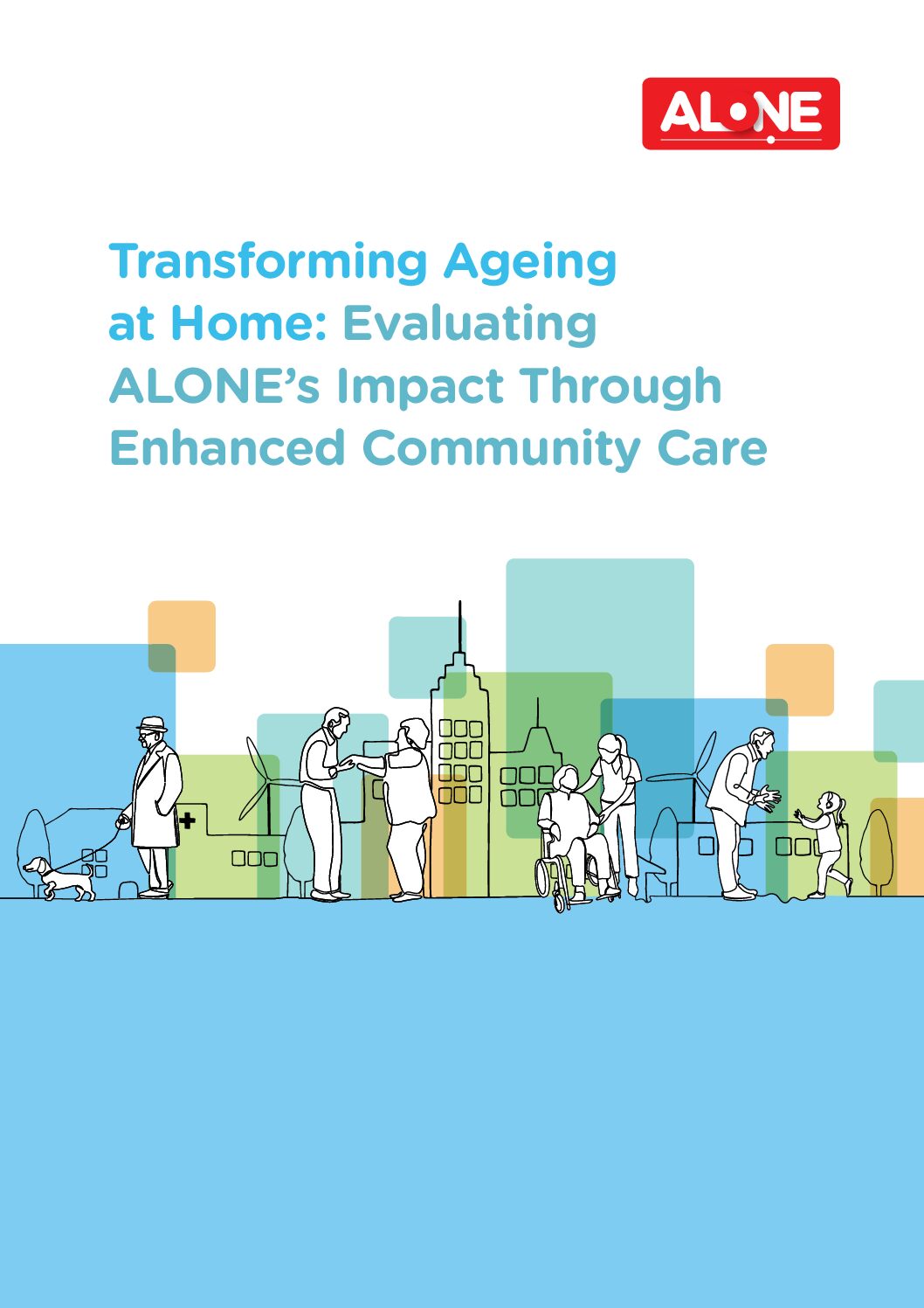Transforming Ageing at Home: Evaluating ALONE’s Impact Through Enhanced Community Care
Ireland is ageing – rapidly and profoundly. Within the next 5 years more than one million people in this country will be aged 65 and over. This shift presents a powerful opportunity: to reimagine how we support older people to live in the community.
At ALONE, we believe that every older person should have the opportunity to age in place – safely, independently, and with dignity. Our work as part of the HSE’s Enhanced Community Care (ECC) programme reflects this belief, offering a person-centred, community-based model that
responds to the evolving needs of Ireland’s ageing population.
This report, Transforming Ageing at Home, marks an important milestone. It represents a rigorous assessment of community based care for older people in Ireland and stands as the most comprehensive evaluation of our integrated support model to date; one of only a few such in-depth evaluations of its kind conducted internationally. Through a robust mixed-methods approach – including impact surveys with 273 older people across three time points, 34 deep-dive interviews with key stakeholders, data from 640 feedback surveys from older people and referrers,
and comparisons with national and international data – we have built a detailed picture of how ALONE’s services are transforming lives. The findings are compelling. Older people supported by ALONE reported notable improvements in loneliness, quality of life and
personal capability, particularly those accessing our Visitation and Telephone Support & Befriending services. Beyond the individual impact, our model has helped reduce reliance on emergency services and eased pressures on GPs and other community
providers; a testament to the ECC programme’s vision for integrated care.
These outcomes demonstrate value for money, showing that investing in community-based supports for older people delivers a meaningful return on investment; both in improved wellbeing outcomes and in reduced demand on stretched health services.
Crucially, this report amplifies the voices of a group too often overlooked: older people who are lonely, isolated, or in need of support, yet remain underrepresented in policy and planning. Their insights are at the heart of this work and
are a powerful reminder of what it means to build a truly inclusive and responsive system.
We are particularly proud that this evaluation was developed and delivered in partnership with London School of Economics and Political Science. It is part of our commitment to evidence-based practice – where rigorous data and lived experience work hand in hand to shape
services that matter. As the number of people aged 65 and over continues to grow, the need for scalable, community-driven solutions has never been more urgent. We are grateful to our partners, staff, volunteers, and above all, the older people who participated in this study. Together, we are not just responding to demographic change – we are shaping a future where ageing is supported, respected, and embraced.


